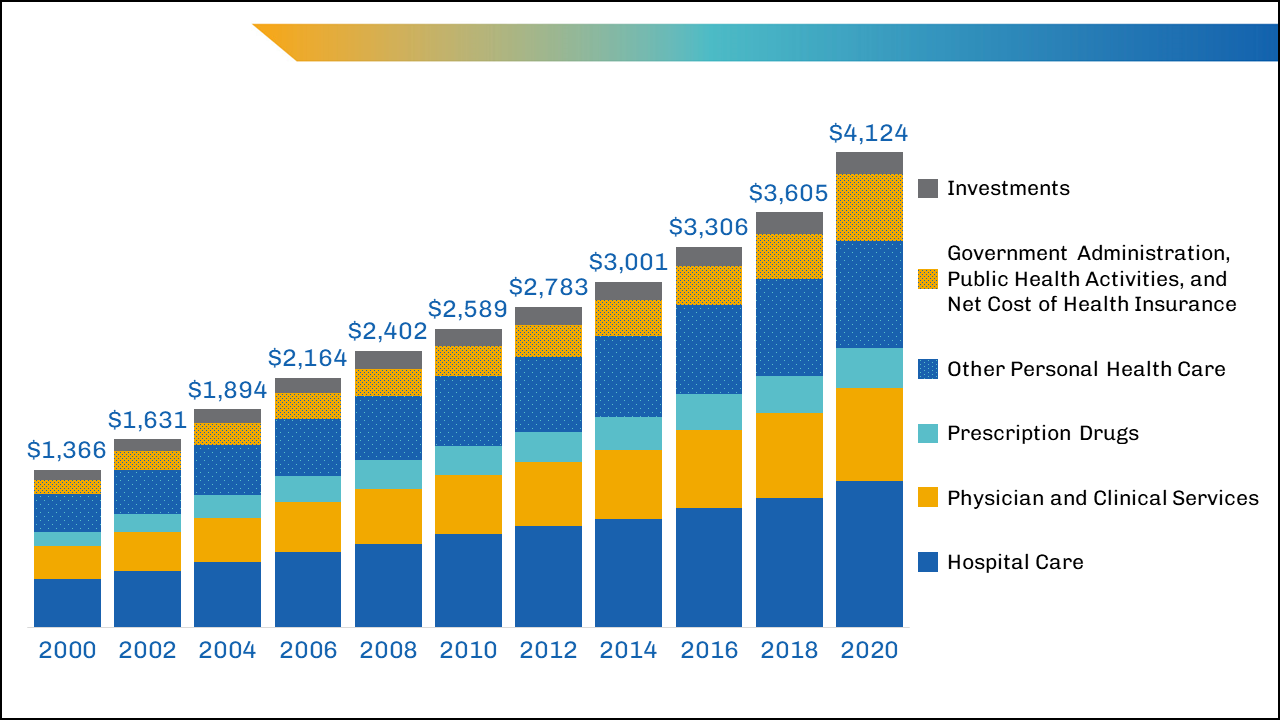Just How to Execute Healthcare RCM for a Smooth Earnings Cycle
Wiki Article
Recognizing the Function of Healthcare RCM in Enhancing Monetary Efficiency and Patient Contentment
Navigating the details of Medical care Income Cycle Administration (RCM) is vital for achieving optimum financial efficiency while simultaneously boosting patient contentment. As we check out the transformative possibility of RCM, concerns regarding its critical implementation and future innovations bid, promising insights that might redefine sector requirements and client experiences alike.

Trick Components of RCM
In the complicated landscape of health care, Revenue Cycle Monitoring (RCM) is pivotal in making sure financial security and operational efficiency. A comprehensive RCM system encompasses several critical components, each playing a crucial function in the seamless monitoring of a health care provider's financial processes. Individual registration and qualification verification are foundational actions, making certain that precise individual information is recorded and insurance coverage is verified before services are made. This decreases the risk of case denials and increases the compensation process.
Fee capture is an additional necessary component, including the accurate recording of services supplied to patients. It ensures that all billable solutions are accounted for, thereby making the most of earnings potential. Concurrently, clinical coding translates patient experiences into standard codes, which are vital for billing and regulatory conformity.
Insurance claims submission and management adhere to, including the preparation and entry of insurance claims to payers. This process requires careful focus to detail to lessen mistakes and stop hold-ups. Denial management is an aggressive approach to fix and deal with rejected insurance claims, safeguarding income streams.
Finally, payment uploading and patient collections finish the cycle, guaranteeing settlements are properly taped and impressive equilibriums are gone after. With each other, these components develop a durable framework that sustains the economic and operational health and wellness of health care organizations.
Impact on Financial Efficiency
Effective Profits Cycle Monitoring (RCM) considerably affects a medical care company's monetary performance by optimizing capital and lowering revenue leak. RCM includes the extensive payment and collection procedures that guarantee doctor efficiently handle their financial purchases from individual enrollment to final repayment. By simplifying these processes, organizations can lessen refuted insurance claims, expedite payment cycles, and improve general monetary health and wellness.Financial efficiency is improved via precise administration of billing procedures, which involves exact coding and prompt submission of cases. This lowers the likelihood of case denials and rejections, which can substantially prevent earnings flow if not dealt with immediately. Moreover, integrating advanced innovation options facilitates real-time monitoring of claims and financial metrics, supplying medical care managers with the tools required to make enlightened calculated decisions.

Enhancing Person Satisfaction
While optimizing financial efficiency is a vital objective of Profits Cycle Management (RCM), it also plays an essential role in boosting client contentment. By lowering management burdens, RCM permits healthcare carriers to concentrate extra on client care, which directly boosts individual satisfaction.
RCM also enhances person complete satisfaction with effective interaction. By keeping a detailed data source of patient information, RCM facilitates improved interaction between patients and healthcare carriers, guaranteeing people really feel educated and valued. This openness and access foster a favorable individual experience. Overall, efficient RCM execution not just increases financial results however also considerably adds to a patient-centered healthcare atmosphere.
Methods for Effective RCM
Attaining efficient Income Cycle Management (RCM) needs medical care organizations to carry out a set of strategic techniques that ensure financial security and functional efficiency. One critical method is the fostering of technology-driven remedies, such as incorporated software platforms that improve billing procedures, reduce mistakes, and websites enhance information accuracy. These systems enable real-time tracking of economic metrics, permitting timely recognition and correction of inefficiencies.Another approach is the standardization of processes throughout the earnings cycle. Healthcare RCM. This includes establishing regular policies for individual registration, insurance coverage verification, and declares processing. By making certain that all staff comply with these requirements, organizations can speed up and minimize inconsistencies settlement collections
Team training and development also play an essential function in reliable RCM. Well-trained personnel can successfully navigate intricate invoicing procedures and regulations, improving and decreasing rejections capital. Regular updates on policy changes and ideal techniques assist maintain a proficient and knowledgeable labor force.
Future Trends in RCM
As medical care organizations improve their Earnings Cycle Administration (RCM) approaches with innovation and standardized processes, attention is now turning towards the future trends shaping this vital location. One substantial fad is the integration of expert system (AI) and equipment understanding to automate complex tasks, such as cases refining and anticipating analytics. These innovations More Info are expected to reduce mistakes, speed up purchase times, and give data-driven insights for much better decision-making.
Additionally, the shift towards value-based treatment continues to influence RCM methods - Healthcare RCM. Doctor are anticipated to increasingly concentrate on client results and complete satisfaction, demanding RCM systems that can accommodate new compensation designs. This change will certainly call for more extensive information collection and evaluation to efficiently report and measure on performance metrics
Interoperability is one more arising priority, as seamless information exchange between disparate systems becomes vital. Enhanced interoperability will help with more accurate patient details sharing, minimizing administrative burdens and enhancing the person experience.
Verdict
Healthcare Income Cycle Management Read Full Report (RCM) significantly influences both monetary efficiency and individual satisfaction by maximizing billing processes, making sure accurate coding, and making it possible for timely cases submission. Reliable RCM reduces profits leakage and speeds up cash money circulation, lowering case rejections and speeding up settlements.Navigating the ins and outs of Health care Income Cycle Administration (RCM) is vital for achieving ideal economic efficiency while concurrently elevating client satisfaction. RCM incorporates the thorough invoicing and collection processes that guarantee health care suppliers successfully handle their financial deals from person enrollment to last settlement. By decreasing administrative worries, RCM allows medical care suppliers to concentrate a lot more on individual treatment, which directly boosts person satisfaction.
By maintaining a thorough data source of patient info, RCM assists in enhanced communication between people and medical care carriers, making sure patients really feel notified and valued.Healthcare Earnings Cycle Management (RCM) substantially affects both financial efficiency and patient complete satisfaction by optimizing billing processes, ensuring accurate coding, and enabling timely insurance claims submission.
Report this wiki page